consumer lifestyle changes mean sales in the food-to-go sector are rising - but customers are getting very picky about what they eat. A growing number want healthier lines - things like wraps, low-fat sandwiches or even sushi - and these products are slowly finding their way onto forecourts.
According to the AC Nielson Global Consumer Survey from October 2006, 49% of people cite nutrition and 47% health, as "very important" when choosing food and drink products.
Walk into many forecourt shops and you’ll find more wholemeal bread, low-calorie sandwich fillings and vegetarian choices than 12 months ago. And when you think how the industry was a decade ago, the change is quite radical. This is also apparent in the drinks sector, where smoothies and juices are jostling for space alongside bottles of Coke and 7-Up.
BP has been one of the trailblazers in food-to-go on the forecourt, both with its Connect/Wild Bean Café format and its partnership with Marks & Spencer. The Simply Food stores offer everything from veggie wraps to pasta salads. The partnership started with a trial in October 2005 and has grown to more than 40 sites. Now the companies are planning to roll the concept out to about 200 more BP Connect sites over the next few years. BP has also revamped its Wild Bean Café offer, which is now available to independents as a franchise.
== best of both ==
The latest Wild Bean sandwich range includes Moroccan chicken with yogurt dressing, and cheese ploughmans with matured cheddar, vine-ripened tomatoes and baby leaf spinach. But the café has kept the more traditional offerings like the Cornish pasty and chicken & ham slice - although even these are made with better quality ingredients.
According to HIM director Mike Greene, having both traditional and slim-line products is the secret to running a successful food-to-go section: "People are talking thin but eating fat. Customers want to know these healthier options are there just in case they fancy one of them that day. Retailers need to provide for both indulgence and health - some lines like sandwiches with exotic fillings may not be mass sellers but they give the range credibility. But consumers also want the bog-standard stuff like the BLT to be available. Put simply, they want choice."
Bosses at Somerfield, which saw its store at Evesham, Worcestershire, named the ’Best food-to-go outlet’ at the Forecourt Trader of the Year awards in 2006, seem to agree. Food-to-go accounts for 17% of its forecourt shop sales. And while the most popular products are still the meatier or higher-fat ones, the company is looking at introducing speciality and low calorie options.
Steve Tremlett, head of formats at Somerfield, says: "Breakfast baps are the top sellers in hot food. Bacon and sausage baps are in the top 10 fastest-moving shop lines in our transient forecourt sites. Sausage rolls and cheese & bacon turnovers are also strong sellers. But we are reviewing our healthier options offer now with the aim of providing a lighter, healthier alternative, which is especially relevant to our female customers."
And as women are responsible for 40% of all money spent in forecourts, this is a canny move.
Meanwhile Bakehouse has seen a trend in consumers trading up to premium products. It says customers want to replicate the eating out experience as much as possible and can afford more expensive products on an everyday basis.
Bakehouse marketing director, Kate Raison, says: "The continuing growth in flexi-eating and escalation of ’sandwich fatigue’ has given rise to increased opportunities for bakers and caterers, with consumers looking for more interesting, high-quality savoury products to eat on the move."
Products which reflect this change include Bakehouse’s cheese & wild garlic twist - a lighter alternative to traditional meaty savoury pastries.
== organic growth ==
Another trend is the rise in organic food. Manufacturer Country Choice says it’s seen phenomenal growth in this sector in the past 12 months. The company’s product manager, Stephen Hatton, says: "Sales of our organic products, like the brown loaf, continue to increase at a rate that puts them very near the top of our fastest-growing lines list. And this is indicative of the sector in general with brown organic growing faster than white. We recently launched a brown crusty roll and within just four weeks, sales of the product had reached 20% of its white counterpart."
There has also been a shift towards salad pots, fruit salads and fresh sandwiches with no mayo.
Hatton comments: "The past year or so has seen evolution rather than revolution in the food-to-go sector, with increased uptake of our existing lunchtime products and a noticeable shift in consumer demand.
"Even in the savoury pastry sector, which I don’t think anyone would ever describe as ’low fat’, consumers appear to be doing their best to follow the ’better for you’ trend by choosing provenance products like our Aberdeen Angus steak bake."
== smooth talker ==
Expand this healthy philosophy to the drinks section and retailers can expect even better results.
Country Choice offers a smoothie concept which includes all the components needed to make the fruit-based drinks: the ingredients, equipment, packaging and POS material. Smoothies are quick and easy to prepare and offer high margins. And the UK market is worth an estimated £85m per year.
Other manufacturers are jumping on the health bandwagon. The Fabulous Bakin’ Boys is launching a range next month targeting the adult snack market.
Including papaya, apricot and pineapple flapjacks and ’soft bake’ biscotti cakes, the Naturally Fabulous range will be marketed as real food with real ingredients.
And Ginsters has revamped its snacks to include the Simply Better range. All the products, including Thai-style prawn tortilla wrap and Wiltshire ham salad, contain fewer than 350 calories.
Meanwhile, Musgrave Budgens Londis is getting ready to roll out its revamped food-to-go offering - including a juice bar and pizzas made fresh on site - to forecourts. It has been trialling the new look at its standalone store in Weymouth and managers are excited by the potential.
Steve Carter, the company’s head of fresh food buying, says: "This is a huge growth area with high margins. But there has to be a high level of commitment from retailers. It’s very labour-intensive and training in things like operating the equipment and health and safety are essential."
Experts agree the trend for healthier eating is driving growth in the hot snacking market.
One in 10 forecourts now offers hot food - compared with less than 1% in 2003, according to the Institute of Grocery Distribution (IGD).
== partnership approach ==
Stewart Samuel, IGD senior business analyst, says: "We’ve seen a lot of partnerships in this area - Esso has Costa Coffee, and Subway has been bringing its brand onto forecourts. There is also the Park Café concept from Park Garages, which shows how an independent can develop its own brand.
"One of the key trends in the convenience sector over the past couple of years has been an increase in chilled foods and sandwiches, which does imply there is a healthy trend going on. There’s a lot of profit potential for retailers, but they are often restricted because of space - forecourt shops are traditionally about half the size of convenience stores.
"But many dealers are very innovative and entrepreneurial and move quickly to adapt to changes.
"The main thing is for dealers to get to grips with how to produce the goods, how much of a range to offer and how to vary it for breakfast, lunch and dinner. There is also the problem of wastage to consider."
One way to avoid wastage is to stock ready-made snacks which can be heated on site. The microwaveable Rustlers range has had hydrogenated fat removed from all its products and brand owner, Kepak Convenience Foods, has cut the calories and fat in the core range. Also available are two new lines with less than 5% fat: a tikka naan and Italian chicken.
Peter Fazal, sales director of Kepak, admits the changes give them a competitive advantage, but he says they also help consumers make a more informed choice.
So what are you waiting for? The message seems to be that food-to-go is the way forward. And it’s best for retailers to act sooner rather than later.
Says HIM’s Greene: "Margins are high so retailers don’t need to sell lots of food-to-go to make money.
"And because not everyone is in this sector, it does offer great opportunities for those who do - and especially those who do it well."
----
=== case study: motor fuels group ===
Motor Fuels Group was the first independent forecourt operator in the UK to trial BP’s Connect and Wild Bean Café franchise. And it has proved very successful, according to the group’s director, Sailesh Sejpal - known as Sej. Business in the food-to-go areas at the two trial sites - Crow Orchard Connect, just off junction 27 of the M6, and Maynestone Connect, just off the M56 at Ashton Under Lyne, near Manchester - is booming.
The group has since developed the concept at two more sites and there are plans to expand further by the end of the year.
"So far Wild Bean has been an absolute godsend as a profit creator," says Sej. "It covers about 15% of the shop area but when you work out profit per metre it’s just amazing.
"The margins on food-to-go are very high anyway, but they can be nudging 70% if you get it right.
"We recently set up our fourth Wild Bean Café in Gloucester and we’ve seen sales rocket. We were given a target of £3,500-worth of sales a week within six months, but we hit that in three weeks. Obviously that was before the floods, so things might slow down a bit."
Sej now hopes to increase the number of Wild Bean Cafés he has to at least 10 by the start of next year.
He says the secret of its success is the fresh ingredients used, variety of products and nutritional information offered. "The breakfast panini is our best seller, followed by sausage rolls and steak slices. But we also sell lots of sandwiches and baguettes - people like the fact that the packaging displays the nutritional data, just like M&S.
"It’s food that’s freshly made on the premises and it tastes great."
Sej says a certain amount of training is essential. He went on a five-day course to learn about how to operate the baking equipment and for tips on hygiene and food preparation.
He says it was well worth the effort: "It’s amazing when you think of the turnover now - especially when we only did a few bought-in sandwiches and pasties before."
----
=== Case Study - Botterills Spar, Kirkmuirhill ===
Botterills Spar in Kirkmuirhill, South Lanarkshire, Scotland, opened its food-to-go section just over a year ago. Part of the Botterills group - the biggest independent in Scotland with 46 stores - it trades under the Spar brand and has an Esso forecourt. The site is near the M74, junction 9, and relies on commuters and passing trade.
The shop stocks an extensive range of hot and cold snacks from Country Choice including ciabatta pizzas made on site, lasagne and cauliflower cheese. It also has a standalone chiller unit stocked with salads, yogurts and sandwiches as part of the Scottish Executive’s Healthy Living campaign.
Manageress Janet Walsh says: "This side of the business has really taken off, and it’s amazing to think that about a year ago all we had in this section was a few sandwiches which were supplied to us. Now that we’ve got Bake ’n Bite all set up we cook the baguettes as well as heating the pasties and pies. We also make the pizzas, which have a ciabatta base, and put the toppings on fresh in the shop. We only started doing these six weeks ago but they’ve really taken off."
The shop also offers healthier options for hot takeaway meals such as cauliflower cheese made with low-fat cheese. These come frozen from Country Choice and are cooked on site before being cut into portions and sold with either a side salad or curly fries.
Janet says: "Our baguettes are the most popular foods, especially with lighter fillings like the chicken mayo. White baguettes are the most popular but wholemeal is not far behind.
"A lot of men seem to want a bap rather than a baguette, so we offer them too. And we sell plenty of wraps and fruit salads from the Healthy Living chiller, especially to women - although this does depend on the season. In winter the hot sausage rolls sell better than the salad or pasta pots."
The shop is open from 7am to 11pm and the food-to-go section from 7am to 6pm.
Janet says food-to-go is definitely an important part of the business. "It accounts for about 5% of sales at present, but it’s growing."
----
=== case study - fraser group, brize norton ===
The Fraser Group is planning to revamp the food-to-go at its site in Brize Norton, Oxfordshire. The 24-hour forecourt has a Spar c-store and BP-branded fuel. It has Country Choice’s Bake ’n Bite concept with hot snacks and sandwiches served between 6.30am and 3pm, with a Costa Coffee machine for hot drinks.
Group operations manager, Martin Wilson, says: "We’ve had our Country Choice offering in place for three years now and it’s made food-to-go a key part of our business. We have a good turnover with baps and baguettes. But this industry moves so quickly it’s time for a redesign. The section provides about 8% of sales but I think we could double that if we modernised things." Mark says providing facilities for fresher and healthier food would boost sales but he’s worried it could prove detrimental to other parts of the business. One of the things he has been looking at is the possibility of making up the food to order. But because of the size of the shop, this could cause queues and stop people being able to access other products.
He adds: "The demand for healthy food on the move has grown at an amazing rate. I’d like to fit a smoothie bar offering more healthy options. The equipment doesn’t take up much room and provides good profit margins."






















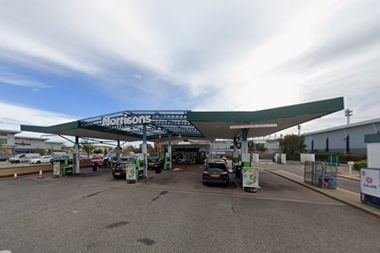


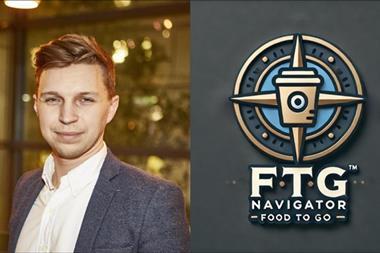


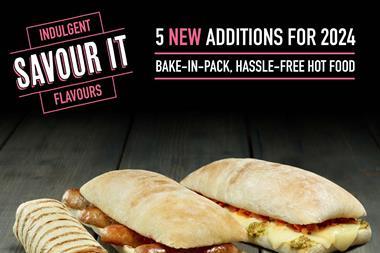
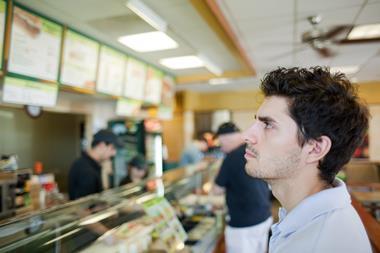
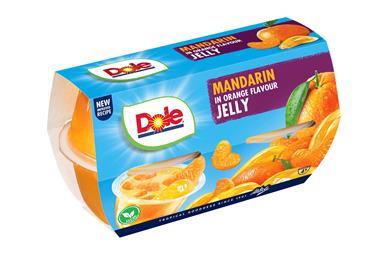
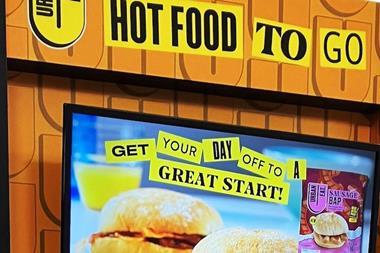
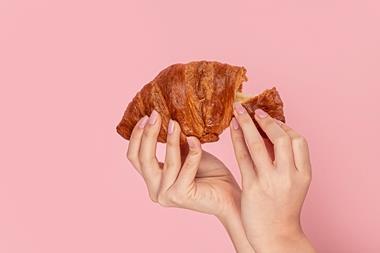
No comments yet